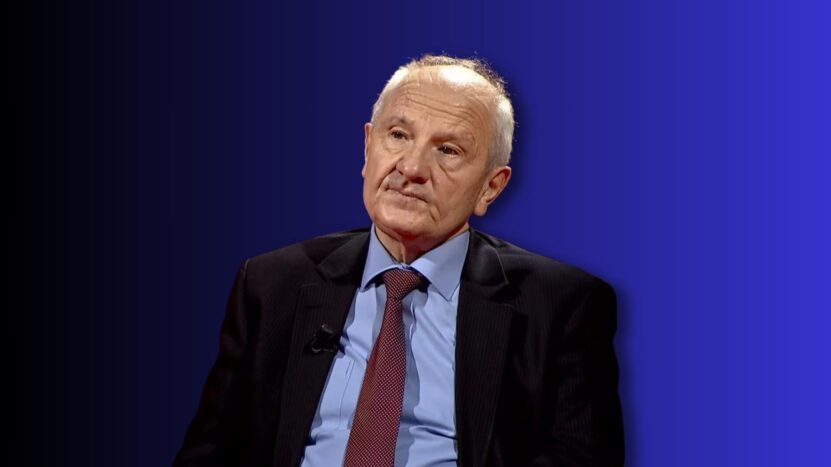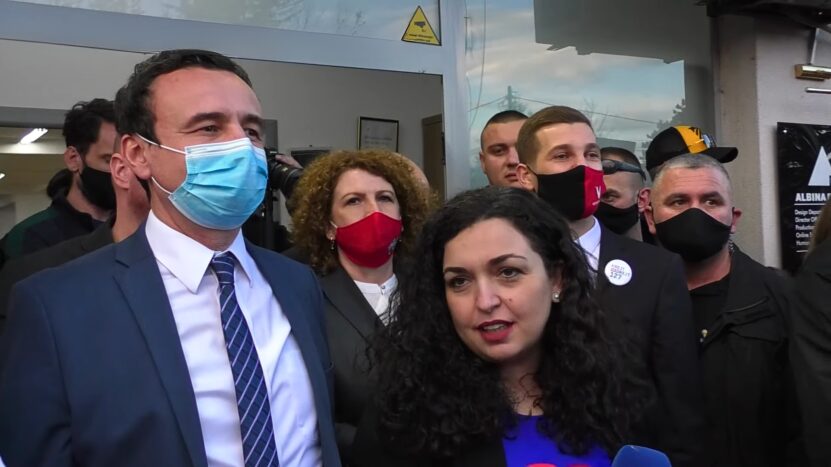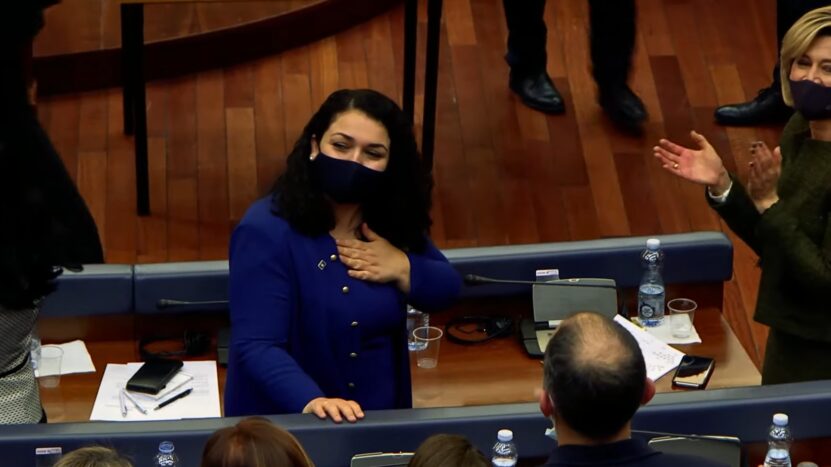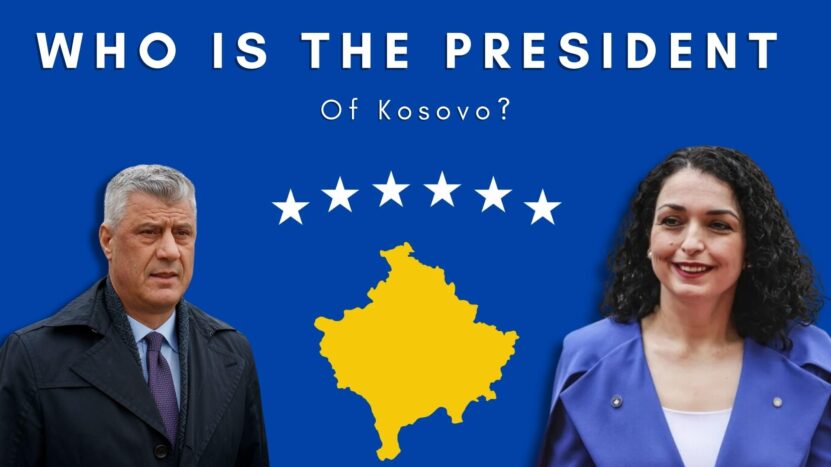Kosovo, located in Southeast Europe, has a rich history and has been a significant topic in international relations due to its declaration of independence from Serbia in 2008.
The nation has strived to build its identity and governance structures amidst various challenges. Its current president is Vjosa Osmani.
Political Landscape
The political landscape of Kosovo has been shaped by its struggle for recognition, its diverse ethnic composition, and the legacies of past leaders.
The role of the president, as the head of state, has been pivotal in navigating through these complexities, representing the country both nationally and internationally.
Historical Context
Kosovo has navigated through a tumultuous history, from being a part of the Ottoman Empire to the Yugoslav era and eventually declaring independence in the 21st century.
The nation has witnessed various shifts in its political and social structures, each era leaving an indelible mark on its progression.
Past Presidents and Their Legacies

The presidents of Kosovo have played crucial roles in shaping the nation’s trajectory. From Ibrahim Rugova, who served until his death in 2006, to Fatmir Sejdiu and his successors, each leader has brought different perspectives and policies to the office, influencing the country’s development and international relations.
Current President
Background and Early Life
Vjosa Osmani, born in Kosovo and raised in the suburb of Zhabar, Mitrovica, began her political journey as an activist and later pursued law at the University of Pristina and the University of Pittsburgh School of Law.
Her journey to the presidency is marked by various roles in public service and a commitment to enhancing the governance structures of the country. Osmani’s early life and career have been instrumental in shaping her perspectives and policies during her presidency.
Her dedication to governance and cultural identity is not only evident in her political pursuits but also reflects a broader commitment to preserving and promoting the rich tapestry of Kosovo’s cultural heritage, which has been a significant aspect of the nation’s international representation and internal unity.
While Osmani’s early life was significantly shaped by the socio-political context of Kosovo, the cultural and religious backdrop of the nation, deeply intertwined with its predominant faith practices, also played a pivotal role in molding the societal norms and values she would later navigate in her political career.
Her early life was significantly impacted by the socio-political turmoil in Kosovo. Born in Zhabar, Mitrovica, a region that was then part of Yugoslavia, Osmani’s childhood unfolded against the backdrop of the Kosovo War.
Her experiences during these tumultuous times, including a harrowing incident where a soldier forced an AK-47 rifle into her mouth during a raid on her home, have undoubtedly shaped her resolve and political outlook.
Academic Pursuits and Legal Expertise
Osmani’s academic journey is both impressive and extensive. After earning her bachelor’s degree in law from the University of Prishtina, Kosovo, she pursued further studies at the University of Pittsburgh School of Law, obtaining a master’s degree in law (LLM) in 2005 and a doctorate in juridical science (SJD) in 2015.
Her doctoral dissertation explored the applicability of the UN Convention on Contracts for the International Sale of Goods (CISG) in Kosovo, reflecting her deep engagement with international law and its implications for her home country.
Initial Political Engagements and Challenges
Osmani’s political career, which began in her teens as an activist for the Democratic League of Kosovo (LDK), has been characterized by her unwavering commitment to democratic principles and legal frameworks.
Her early political journey saw her serving as chief of staff for then-president Fatmir Sejdiu in 2009 and contributing to the country’s independence as the president’s representative for the Constitution Commission.
She also represented Kosovo in a case at the International Court of Justice, defending the legality of the country’s independence.
Encountering and Navigating Political Disagreements
Osmani has not shied away from voicing her disagreements and standing firm in her convictions, even when it meant clashing with her own party. In 2014, she criticized the LDK for forming a coalition government with its long-time rival party, the Democratic Party of Kosovo (PDK), and boycotted the presidential election in 2016.
Her principled stance on issues, even when it meant going against party lines, has been a defining feature of her political career.
Rising to the Presidency

In 2020, Vjosa Osmani was thrust into the role of acting president of Kosovo after President Hashim Thaçi resigned following an indictment by the Kosovo Specialist Chambers and Specialist Prosecutor’s Office in The Hague.
During this period, she founded her own political party, Guxo, and aligned with Albin Kurti‘s Vetëvendosje party. Running on an anti-corruption platform, Osmani and her allies secured a landslide victory in the subsequent elections, with Osmani personally receiving more than 300,000 votes.
Presidency and International Relations
Upon her election as president on 4 April 2021, Osmani became the second woman to hold the position and the first person to have served as both acting president and president of the country.
Her presidency has been marked by a commitment to normalizing relations between Kosovo and Serbia and reinstating the flag of Dardania as the official symbol of the presidency, symbolizing a strong sense of national identity and unity.
Osmani has also been active on the international stage, visiting numerous countries and engaging in diplomatic efforts to bolster Kosovo’s international standing and relationships.
She has navigated through international diplomacy with a focus on establishing Kosovo as a sovereign and recognized entity on the global stage.
Her visits to various countries and participation in international forums have been geared towards fostering diplomatic relations and showcasing the country’s commitment to global peace and cooperation.
She has also been involved in discussions and meetings at international platforms like the United Nations Security Council Meeting, the European Union, and more, aiming to voice Kosovo’s perspectives and engage in global dialogues.
Advocacy for Women in Politics
Osmani’s leadership has also been notable for her advocacy for women in politics. Her election as president not only marked her as the second woman to hold the position but also showcased her ability to navigate through the political landscape, which has often been challenging for women.
She has been a vocal advocate for women’s rights and gender equality throughout her career. She has worked towards increasing women’s representation in politics and leadership roles, advocating for equal opportunities, and addressing gender-based violence.
Osmani has emphasized the importance of women’s participation in decision-making processes and has been involved in various initiatives and policies aimed at empowering women and ensuring their rights are protected and promoted in the country.
She has successfully run on an anti-corruption platform, and her leadership has seen women securing a third of the 120-seat parliament and an unprecedented six positions out of fifteen in the cabinet.
Challenges and Controversies

Osmani’s journey through the political landscape of the country has not been without challenges and controversies. Her political career began in her teens as an activist for the Democratic League of Kosovo (LDK).
However, she faced internal political strife, especially when she criticized the LDK for forming a coalition government with its long-time rival party, the Democratic Party of Kosovo (PDK), breaking a previously made pledge.
Osmani also boycotted the presidential election in 2016, showcasing her commitment to her principles and willingness to stand against party decisions when they conflicted with her beliefs.
Addressing National and International Criticisms
Addressing national and international criticisms has been a part of Osmani’s leadership challenges. Her presidency has seen her navigate through criticisms and controversies with a focus on maintaining national unity and international relations.
Osmani has been involved in various international discussions and has represented the country in international courts, defending the legality of Kosovo’s independence and engaging in dialogues that aim to establish and solidify the country’s position on the global stage.
Her leadership has been about balancing internal and external pressures while steering Kosovo towards a path of stability and international recognition.
FAQs
How has Vjosa Osmani addressed the issue of corruption within the country?
Vjosa Osmani has been steadfast in her commitment to combating corruption within Kosovo. She has emphasized transparency, accountability, and the rule of law as pivotal to addressing corruption.
Osmani has advocated for strengthening institutions, implementing stringent anti-corruption policies, and ensuring that legal frameworks are robust and enforced effectively to tackle corruption at all levels within the country.
What role has Osmani played in Kosovo’s efforts towards European Union (EU) integration?
Vjosa Osmani has been actively involved in the country’s aspirations towards European Union integration. She has worked towards aligning Kosovo’s policies and legal frameworks with EU standards and has engaged in diplomatic efforts to foster positive relations with EU member states.
Osmani has emphasized the importance of fulfilling the EU accession criteria and has been involved in negotiations and dialogues aimed at advancing Kosovo’s EU integration process.
How does President Vjosa Osmani plan to address the economic challenges faced by Kosovo?
President Vjosa Osmani has outlined various strategies to address the economic challenges in the country, including fostering a conducive environment for investments, enhancing the competitiveness of the economy, and implementing policies that promote sustainable development.
She has also focused on creating employment opportunities, particularly for the youth, and ensuring that economic growth is inclusive and benefits all segments of society.
What has been Osmani’s approach to dealing with the COVID-19 pandemic in Kosovo?
Vjosa Osmani has prioritized the health and safety of citizens in dealing with the COVID-19 pandemic. Her approach has included ensuring the availability of vaccines, implementing public health measures to curb the spread of the virus, and providing support to affected individuals and businesses.
Osmani has also emphasized the importance of cooperation and solidarity, both nationally and internationally, in addressing the challenges posed by the pandemic.
How does Vjosa Osmani view the role of youth in Kosovo’s future development?
Vjosa Osmani views the youth as pivotal to the country’s future development and has emphasized the importance of empowering them through education, employment opportunities, and active participation in decision-making processes.
She believes in harnessing the potential of the youth to drive innovation, entrepreneurship, and sustainable development in Kosovo, and is committed to implementing policies that address their needs and aspirations.
Summary
Vjosa Osmani’s presidency symbolizes a pivotal era in Kosovo’s political and social narrative, intertwining resilience with reform. Her leadership, marked by a staunch commitment to democratic values, anti-corruption, and gender equality, navigates through the complexities of both national and international landscapes.
Osmani, embodying hope and change, continues to sculpt a future for the country that aspires for stability, global recognition, and sustainable advancement, crafting a legacy that will be etched in the nation’s history.
Her journey remains a testament to the power of steadfast leadership amidst multifaceted challenges and opportunities.

